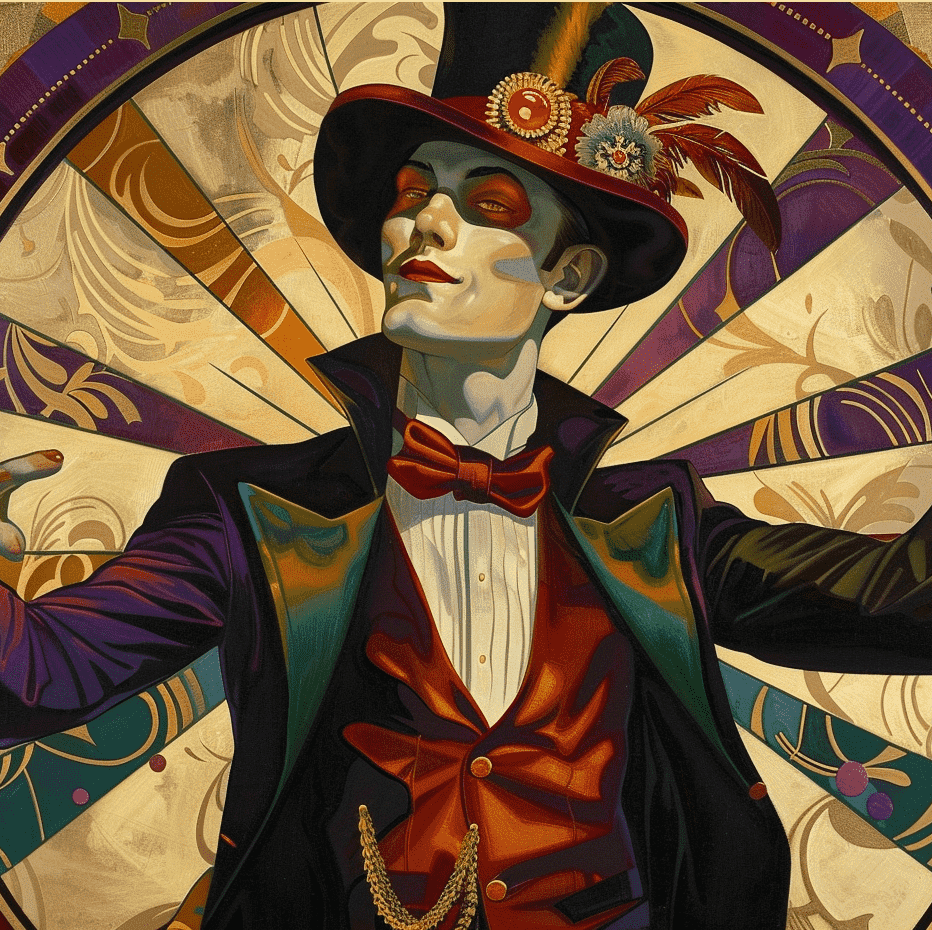
We're doing a series on Jungian archetypes and popular character development tools. Jung drew his inspiration from the same iconic social roles found throughout ancient tarot, alchemy, and mysticism traditions.
Real Magicians and the Magician Archetype
I met a street performer in Wellington, NZ, while studying librarianship. He performed simple tricks using sleight of hand. I must have given him a few dollars because despite my best efforts to reveal his trick, a bracelet appeared fastened to my wrist, and I had no idea how it got there.
The street magician exploits deficits in our attention to delight an audience. A master of human nature, they build their own notoriety and influence with a combination of showmanship and concealment.
We know we're being played with, and we like it.
The magician archetype fills a similar role in the great cosmic wheel of character development. Like the street performer, they understand our greatest desires to impress. They may deal in real magic, science, industry, or healing, but their core function is transformation. They wield the power to make changes through a process that others cannot comprehend. With that power, they strive to leave a legacy. It is their primary motivation.
As writers, the most important consideration for crafting this archetype is establishing the cost of the magician’s power. They must sacrifice something; otherwise, the magician becomes a plot device rather than a multidimensional character. Of course, you can use a magician as a plot device, but for a character to resonate, their power cannot be free to acquire or free to use.
The magician archetype is a powerful character who can be corrupted. They can be good, evil, or anywhere in between. Power magnifies the human flaws and beauty of the spirit. Like the street performer who keeps his tricks secret to get donations, every magician must decide when to withhold their knowledge or abilities and when to share them. A story that features a mature magician character will inevitably lead to a mentor relationship with another magician.
The magician often overlaps with the sage, but there is an important distinction. The sage provides wisdom or truth. The magician takes action. The sage focuses on internal change. The magician focuses on external change.
In Western culture, Merlin is the ubiquitous template for the magician, but only Merlin can be Merlin. Anyone with any personality and any background can be a magician. No pointy hats required.
Here are examples that showcase this archetype:
Gandalf - The Lord of the Rings by J.R.R. Tolkien
Dumbledore - Harry Potter series by J.K. Rowling
Prospero - The Tempest by William Shakespeare
Glinda the Good Witch - The Wonderful Wizard of Oz by L. Frank Baum
Morgaine - The Mists of Avalon by Marion Zimmer Bradley
Chrestomanci - by Diana Wynne Jones
Doctor Strange - Marvel Comics
Mr. Wednesday - American Gods by Neil Gaiman
Rand al'Thor - The Wheel of Time series by Robert Jordan
Belgarath - The Belgariad series by David Eddings
Ged/Sparrowhawk - Earthsea series by Ursula K. Le Guin
